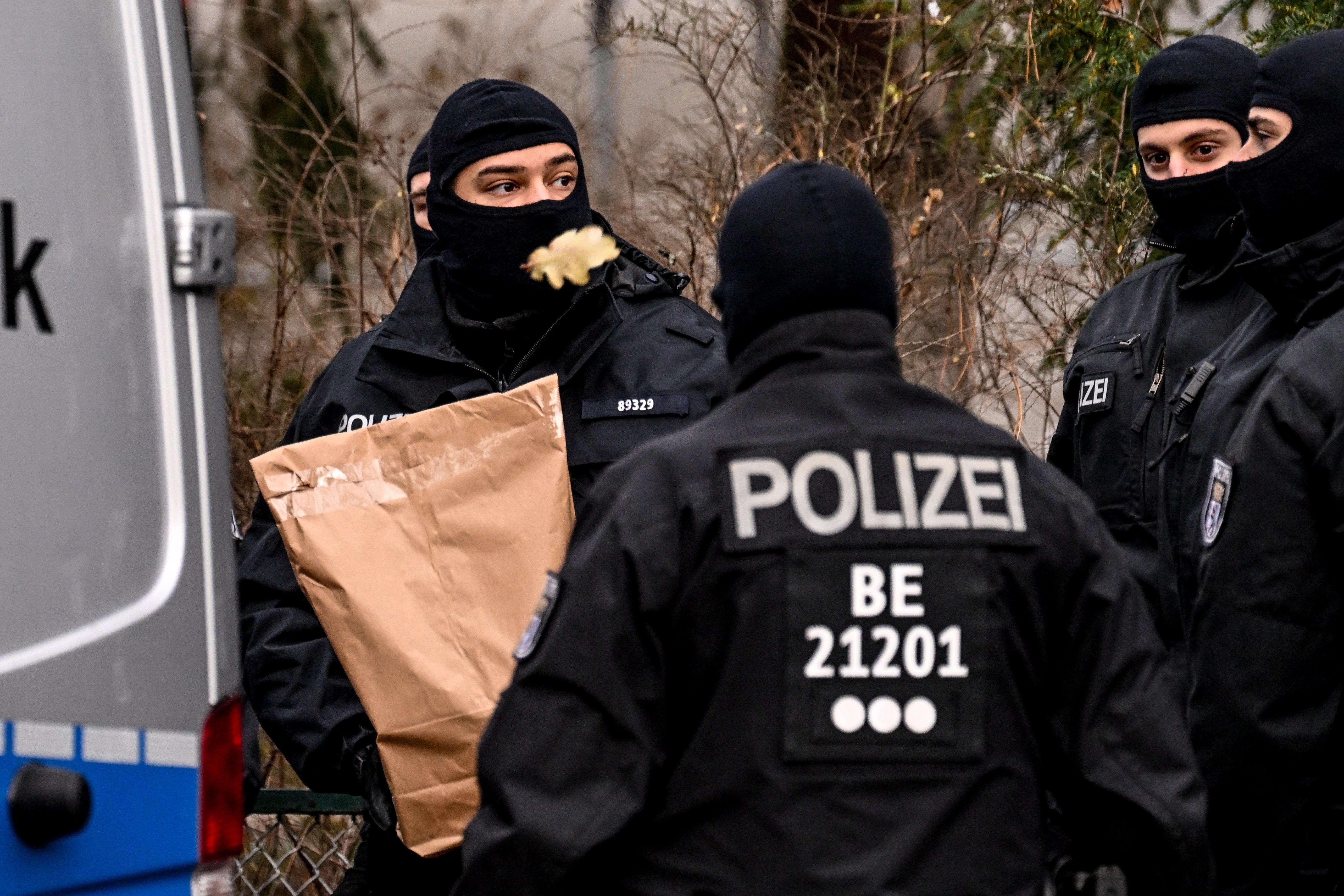Germany ‘coup plot’ shows conspiracy theories are a real-world threat
International security services are concerned about the combination of conspiracy theories with ‘anti-government sentiment’, Lizzie Dearden writes

A violent coup plot spearheaded by an elderly self-styled aristocrat sounds fantastical, but the alleged scheme uncovered by German authorities on Wednesday has strong echoes of the 6 January US Capitol Riot driven by the conspiracy theory that the presidential election had been “stolen” from Donald Trump.
More than 20 alleged members and supporters of the plot have been arrested in an operation involving more than 3,000 police in Germany, where the investigation is continuing with searches and interviews.
Germany’s federal prosecutor said the suspects had formed an unnamed “domestic terrorist organisation” by November 2021, which aimed to overthrow the German government and replace it with a new state led by 71-year-old Heinrich XIII, who styles himself Prince Reuss of Greiz.
“Members of the group follow a conglomeration of conspiracy theories, consisting of so-called Reichsbürger narratives and QAnon ideology,” a statement said.
“They are of the firm belief that Germany is currently governed by members of a so-called ‘deep state’.”
The group had allegedly formed a shadow government for the planned coup, which would be enacted violently by a military branch containing members of the German army and police.
Prosecutors said the suspects were believed to be making preparations to “force their way into the Bundestag with a small armed group”.
While the Reichsbürger movement linked to the case is unique to Germany, with its ideologically varied followers declaring the current German state illegitimate, QAnon is a US import that was a key driver of the Capitol riot.
Adherents believe in posts made by a person or people calling themselves “Q” on various internet forums, which claim the existence of a “deep state” furthering the interests of a global cabal of Satanic paedophiles.
QAnon followers work to expose the “deep state” and frustrate its supposed aims, which have been projected onto elections and geopolitical events around the world.
The movement has gained an international hold and jumped from online spaces into the real world, being linked to significant protests as well as incidents of violence, harassment and vandalism.
Its popularity has increased alongside interest in wider conspiracy theories, which exploded during the Covid pandemic and have continued to morph in response to topical issues.
A conspiracy theorist is currently on trial in the UK accused of preparing acts of terrorism by plotting to “topple the British government” with a series of coordinated attacks on phone masts, communications networks and motorways.
A court has heard that the man, who denies all charges, believed the government was dominated by a Jewish elite who took orders from Israel, was suspicious of Covid vaccines and also thought the pandemic was causing a “Chinese communist system” to emerge.
International security services are concerned, with authorities including Europol releasing warnings over the potential threats from conspiracy theories, which have been linked with rising “anti-government sentiment”.
A 2021 report by the UK’s Homeland Security Group said conspiracy theories were increasingly prevalent among far-right extremists, while Europol warned: “Individuals can be triggered into violent action by narratives and conspiracy theories that do not in themselves endorse violence.”
Earlier this year, the Senior National Coordinator for UK counterterrorism policing told The Independent that conspiracy theorists were starting to come into his “casework”, while last month the director-general of MI5 warned: “We are seeing growing numbers of right-wing extremist influencers, operating globally, fuel grievances and amplify conspiracy theories. This problem feels like it will endure.”






Join our commenting forum
Join thought-provoking conversations, follow other Independent readers and see their replies
Comments